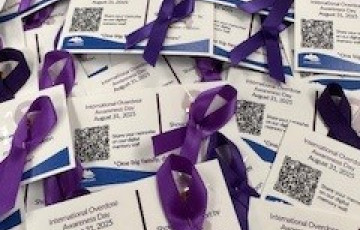Bed-based treatment and recovery services offer support for individuals dealing with substance use challenges. These programs provide a safe place to stay while addressing individual needs. The services listed below are connected to Island Health and include programs that are operated or funded by the health authority.
Each community offers different types of services. The eligibility criteria and referral process vary for each program and must be discussed with your care provider. Please click on a category below to explore options, or contact your local Mental Health and Substance Use team.
- Sobering & assessment centres
-
Sobering and assessment centres provide temporary shelter and safety for clients who are currently experiencing intoxication. Clients can walk-in and typically stay for less than 24 hours.
Programs:
- Victoria Sobering & Assessment Centre
- Cowichan Valley Sobering & Assessment Centre (Warmlands)
- Nanaimo Sobering & Assessment Centre
- Port Alberni Sobering & Assessment Centre
- Campbell River Sobering & Assessment Centre
- North Island Sobering & Assessment Centre (Lighthouse)
- Withdrawal management services
-
Withdrawal management (detox) provides medically supported care to people in withdraw from substances, including alcohol and opiates. Services are bed-based or community-based depending on the location.
Programs
- Stabilization services
-
Stabilization programs provide a period of rest and recovery for those in the early stages of abstinence. Stays are time-limited, typically 14 to 30 days.
Programs:
- Supportive recovery programs
-
Supportive recovery programs provide temporary stays in recovery-oriented environments for those waiting for, or recently completed, treatment. Clients have access to support on-site as well as in the community.
Programs:
- Douglas Street Supportive Recovery (Victoria)
- Holly Place (Victoria)
- The Grove (Victoria)
- Comerford Supportive Recovery (Esquimalt)
- The Bridge (Nanaimo)
- Amethyst House (Comox Valley)
- Comox Valley Recovery Centre (Comox Valley)
- Ann Elmsmore (Campbell River)
- Second Chance (Campbell River)
- New Beginnings (Port Hardy)
- Intensive bed-based treatment programs
-
Intensive bed-based treatment programs (‘residential treatment’) are substance-free settings that provide time-limited, intensive treatment for those experiencing substance use challenges. Clients stay on-site and participate in a structured and scheduled therapeutic program. 24-hour support is available on-site from several care providers.
Programs:



